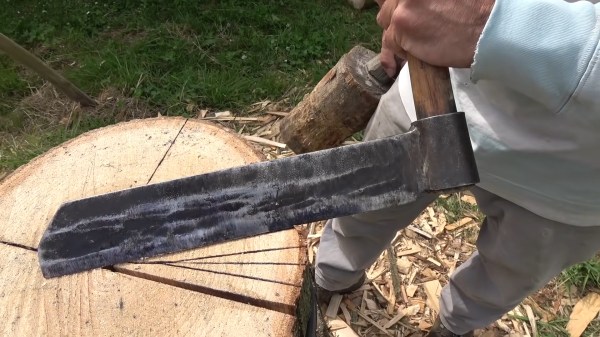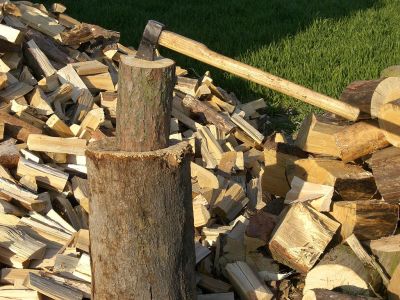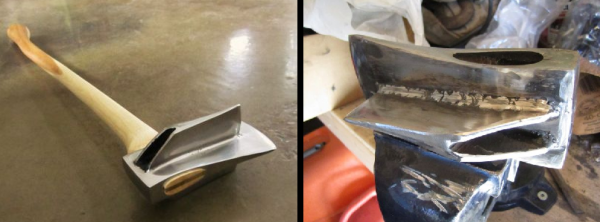While they have mostly been replaced with other roofing technologies, wooden shingles have a certain rustic charm. If you’re curious about how to make them by hand, [Harry Rogers] takes us through his friend [John] making some.
There are two primary means of splitting a log for making shingles (or shakes). The first is radial, like one would cut a pie, and the other is lateral, with all the cuts in the same orientation. Using a froe, the log is split in progressively smaller halves to control the way the grain splits down the length of the log and minimize waste. Larger logs result in less waste and lend themselves to the radial method, while smaller logs must be cut laterally. Laterally cut shingles have a higher propensity for warping and other issues, but will work when larger logs are not available.
Once the pieces are split out of the log, they are trimmed with an axe, including removing the outer sapwood which is the main attractant for bugs and other creatures that might try eating your roof. Once down to approximately the right dimensions, the shingle is then smoothed out on a shave horse with a draw knife. Interestingly, the hand-made shingles have a longer lifespan than those sawn since the process works more with the grain of the wood and introduces fewer opportunities for water to seep into the shingles.
If you’re looking for something more solarpunk and less cottagecore for your house, maybe try a green solar roof, and if you’ve got a glass roof, try cleaning it with the Grawler.

















